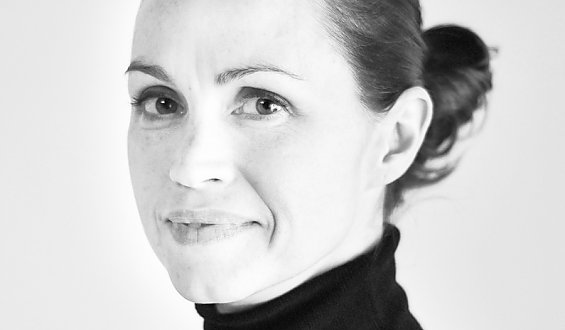After being nominated by the City of Long Beach for her contributions of development to the city, Cal State Long Beach design professor Heather Barker has proved that resilience pays off.
During the Civic Innovation summit, held in the Long Beach Convention Center on Oct. 6, Barker will receive the Innovative Award for academics and research. Through the creation of a new, unique partnership between the city and the University, she has contributed to a new cultivation of research and development.
The summit is organized by the Long Beach Innovation Team, which is an extended branch working for the City of Long Beach in order to create economic development through the connection of bonds between entrepreneurs and innovators. The event is an opportunity for community members to learn about efforts carried out in the city for the purpose of economic development.
Barker has helped the team develop useful tools and methods for the purpose of helping residents start up their own businesses. Together with her students, she has been able to create research projects such as “Start up Long Beach: Code for America” and “CHAD: community, haptics and digital design,” which have been developed as guidance tools for local entrepreneurs.
After being contacted last year by one of her previous students, Harrison Huynh — who currently works as a designer for the Long Beach Innovation Team — she saw the potential in creating a partnership between the team and the design department. Ever since, Innovation Teams across the Los Angeles County have started to employ designers to assist in the creation of creative, beneficial tools like Barker’s.
“For me, as a designer, I cannot imagine how you can practice innovation without a design-thinking process,” Barker said. “It seems like a very natural fit and I think that we have evolved to see that.”
One of Barker’s projects that the Innovation Team took special note of was her User Experience Design Method, which provides an understanding of what is required to start up your own business. Together with her students, she demonstrated the method for the team, who thought that it could help encourage people who want to start their own firm.
“Heather Barker is a great example of how the City of Long Beach and Cal State Long Beach have worked together to help bring rapid research and human centered design to the forefront,” said Alma Castro, project manager at the Long Beach Innovation Team.
Castro went on to acknowledge not only Barker, but also the students who helped her along the way.
“The Innovation Team was able to leverage her amazing students who used the User Experience Design Method, to help us understand the user experience of what it is truly like to start and grow a business in Long Beach.”
Ever since she was young, Barker has enjoyed traveling as much as possible in order to widen her perspective. When studying and practicing architecture in Germany on and off for two years, she developed a love for the country that convinced her to return after extending her education with a graduate degree in research and design at Southern California Institute of Architecture.
“I decided that I needed to go to Germany, because I realized that the people there do not think like we do,” Barker said. “At the time I did not think that this would have such a big effect on my life. But now I teach something that is very closely related to that.”
Barker decided to start up her own design studio when she moved to Germany, where she lived for 13 years before coming back to the U.S. to teach at CSULB. Having travelled a lot, she thinks it is very rewarding to be able to combine all her experiences in the field of architecture and research in order to help students reach the best results possible.
The field of human-centered design is still relatively new in the world of design, but she thinks it is wonderful to be able to discover it together with her students.
“I am greatly honored by my students that we are willing to go through this process without having any idea of what the outcome would be,” Barker said. “So, it is a great gift for a professor to have faith and confidence in your students to go on a 15-week journey of something that you do not understand, and then have them discover the value of what happened.”
The cooperation that Barker set in motion between CSULB and the City of Long Beach lead to new possibilities that she did not expect.
When presenting her projects at the Design Management Institute Conference in Boston, where countries from all around the world are invited, she received very positive feedback. Members from Chang Hai invited her to come and teach human-centered design at Tongji University, where she will start in December.





I appreciate the kind interview. Thank you. There are a few clarifications to be made. First, the initial contact to the iteam and the alumni are to be credited to our Industrial Design program. I am grateful to my students for having faith in a clear process that generates innovative (therefore not pre-determined/known) solutions. The value of which is not seen until the process is complete. I was fortunate enough to co-present at the DMI Conference in Boston with Ryan Murray, the innovation deputy for the city of long beach. Based on that presentation I have been invited to co-teach as guest professor in the College of Design and Innovation at Tongji University in Shanghai (not Chang Hai) in December. Finally, the award is the Civic Innovation Award for Research and Academics. I am humbled and grateful. Thank you.